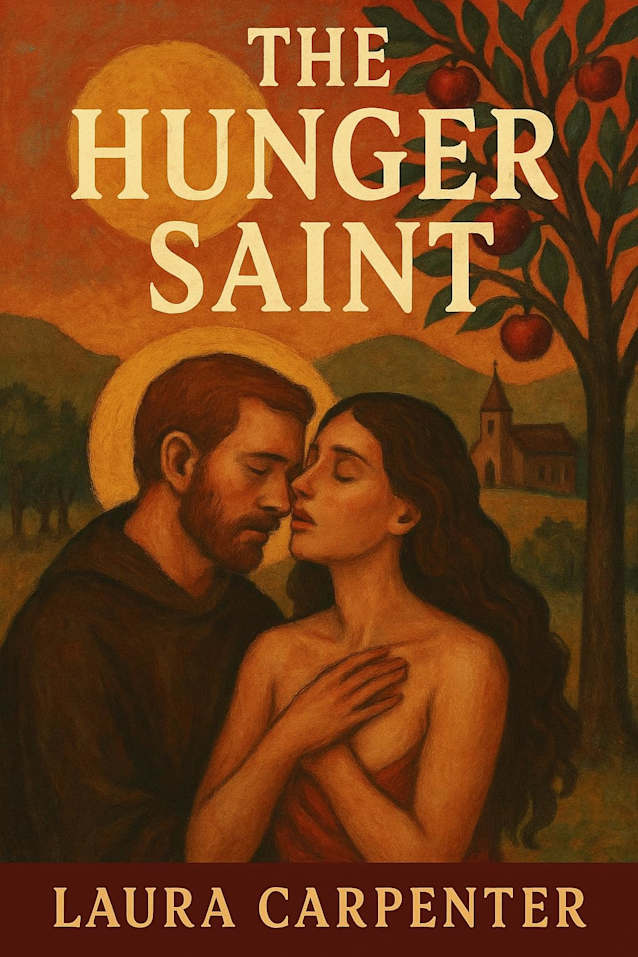The Hunger Saint: A Sacred Gothic Novel of Silence, Sainthood, and Survival
About
She fasted for faith. She bled for family. But sainthood demands more than silence.
In a forgotten orchard parish where relics hum behind locked glass and women are taught to starve their longing into virtue, one woman is vanishing.
Her body is shrinking. Her voice is quiet. Her hunger is holy.
Married young to a man who believes devotion is obedience and motherhood is destiny, she has spent her life stitching herself smaller—until the silence she once wore like a rosary begins to splinter. Her children are growing. Her husband is watching. And somewhere, beneath the soil and salt and sacrament, something inside her is still alive.
When a series of visions begin to blur the sacred with the sacrilegious, she becomes a reluctant vessel for whispered miracles and unspeakable truths. Her fasting is declared a sign. Her suffering, a gift. The orchard blooms out of season. The relics throb. And strangers begin to gather, desperate to touch her, to believe in her, to claim her pain for their own salvation.
But what happens when the miracle wants to be more than a mother? More than a martyr?
What happens when the saint is starving?
The Hunger Saint is a literary gothic novel soaked in sacrament, grief, and grit. It weaves the sacred and profane into a tale of unmaking—of a woman who has given everything away and is still being asked for more. It is a book for the women who stayed, who swallowed, who suffered, who raised children on empty, who bent to keep the peace and called it prayer. And it is for the moment when they rise.
Set in a world not unlike our own—where religion walks hand in hand with silence, where women are relics before they are remembered—this is a story of marriage, motherhood, and the quiet kind of fury that burns longer than fire.
For fans of Claire Keegan, Ottessa Moshfegh, Kirsty Logan, and Carmen Maria Machado, The Hunger Saint offers a haunting, poetic dive into the spaces between holiness and hunger, suppression and sanctity, devotion and defiance.
Themes:
Fasting and female martyrdom
Motherhood, marriage, and bodily erasure
Sacred horror, trauma, and religion
The orchard, the altar, the unmaking of saints
Praise for Laura Carpenter’s fiction:
“Darkly sacred and emotionally feral. She writes like she’s bleeding onto relics.”
“A hymn for women who’ve been hollowed by sacrifice.”
“I felt seen and wrecked and stitched back together.”
If your heart has ever broken at the altar.
If your love has ever been mistaken for obedience.
If your hunger was never holy enough.
This story is yours.
